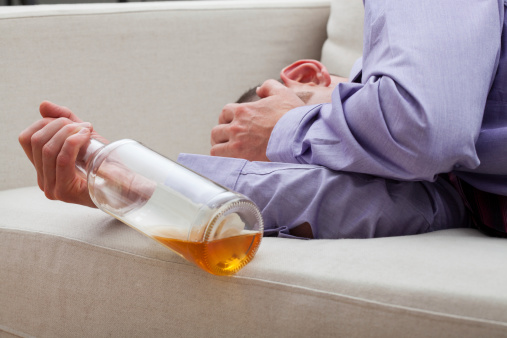Investing
Top 10% of Drinkers Consume More Than 50% of All Alcoholic Beverages
Published:
Last Updated:

If someone is having 10 drinks per day, it is almost a cinch that someone is an alcoholic or a “heavy drinker.” If it weren’t for the heaviest drinkers the alcoholic beverage industry’s total sales would decimated.
The Washington Post cites the book “Paying the Tab” by Duke University professor of public policy Philip J. Cook:
One consequence is that the heaviest drinkers are of greatly disproportionate importance to the sales and profitability of the alcoholic-beverage industry. If the top decile somehow could be induced to curb their consumption level to that of the next lower group (the ninth decile), then total ethanol sales would fall by 60 percent.
What does that mean for some of the world’s largest distillers, winemakers and brewers? Would Anheuser-Busch InBev S.A./N.V. (NYSE: BUD) still have a market cap of $180 billion if people who now consume 10 drinks a day cut back to around two drinks a day, the consumption level of the ninth decile? In 2013, Anheuser-Busch InBev posted total revenues of $43.2 billion and made a net profit of $16.5 billion.
ALSO READ: Cities With the Most Dangerous Diets
SABMiller is the next largest alcoholic beverage maker, with a market cap of $89 billion. The company’s 2013 revenues totaled $34.5 billion and pre-tax profits came in at $3.25 billion.
The two largest alcoholic beverage firms in the world are brewers and to make the top 10% of drinkers solely on beer consumption means a person would have to drink about 10 cans of beer a day. That’s three cases of beer a week; cutting back to two cans of beer a week (the ninth decile) means that more than two-thirds of these companies’ beer sales would be lost.
Diageo PLC (NYSE: DEO) is the largest distiller, with a market cap of around $72 billion and Brown-Forman Corp. (NYSE: BF-A) is the next largest with a market cap of nearly $19 billion. Constellation Brands Inc. (NYSE: STZ) sports a market cap of almost $17 billion on sales of beer, wine and spirits. Lost sales for these companies is a bit harder to figure, but following Professor Cook’s formula, we may safely assume a loss of 60% of sales.
Two of these five companies do not pay any dividend, and Anheuser-Busch InBev’s dividend yield is the best, at 3.7%, ahead of Diageo’s 2.2% and Brown-Forman’s 1.6%. Compare those to the top tobacco companies: Philip Morris International Inc. (NYSE: PM) pays a yield of 4.6% and Altria Group Inc. (NYSE: MO) pays 4.7%.
Speaking of smoking, there are more smokers (42.1 million in 2012 according to the Centers for Disease Control) in the United States than there are heavy drinkers. Nearly half a million Americans, or 1,300 every day, die from the effects of smoking cigarettes. Tobacco use costs the U.S. about $289 billion a year in direct medical care and lost productivity.
The CDC reports that heavy drinking (defined as 15 or more drinks per week for men and eight or more for women) was responsible for about 88,000 deaths in 2006 and an economic cost of $223.5 billion. As a public health issue, heavy drinking is almost as costly as smoking.
ALSO READ: America’s Richest (and Poorest) States
The last few years made people forget how much banks and CD’s can pay. Meanwhile, interest rates have spiked and many can afford to pay you much more, but most are keeping yields low and hoping you won’t notice.
But there is good news. To win qualified customers, some accounts are paying almost 10x the national average! That’s an incredible way to keep your money safe and earn more at the same time. Our top pick for high yield savings accounts includes other benefits as well. You can earn up to 3.80% with a Checking & Savings Account today Sign up and get up to $300 with direct deposit. No account fees. FDIC Insured.
Click here to see how much more you could be earning on your savings today. It takes just a few minutes to open an account to make your money work for you.
Thank you for reading! Have some feedback for us?
Contact the 24/7 Wall St. editorial team.